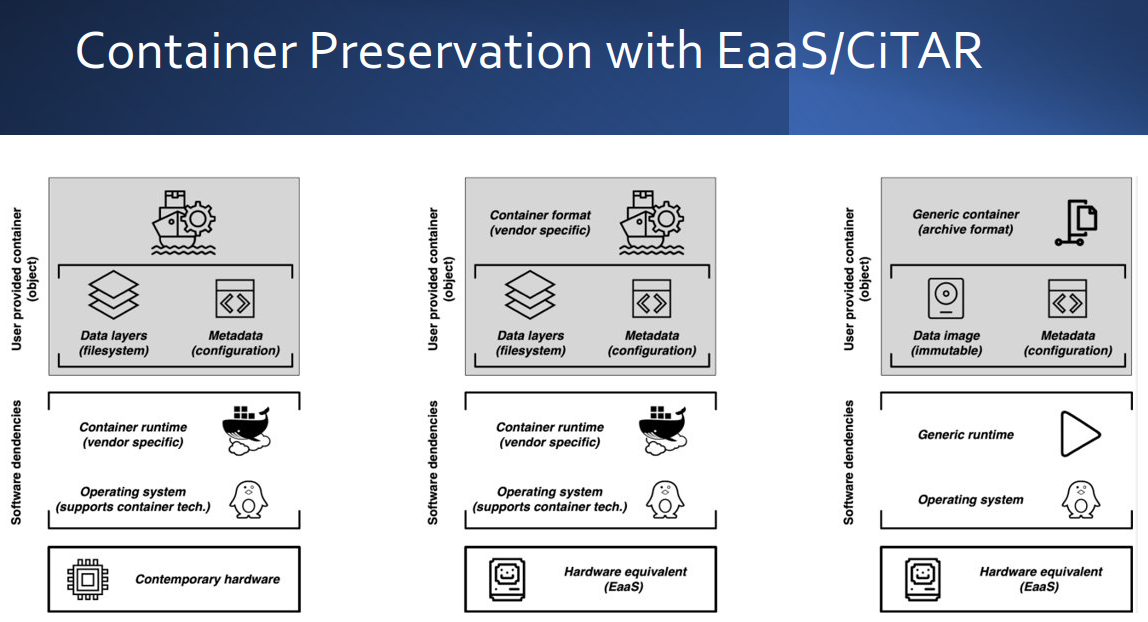DataPLANT participated in the JCDL Satellite Event on 23rd June 2022. It presented it's background and activities on research data management in the workshop RDM and DP communities: Finding the common ground to develop a collaborative future service landscape. Long-term access to research data is one of the major goals of the NFDI. Our consortium is strongly committed to research data management and the necessary technical and organizational frameworks. Before the start of DataPLANT the participants of the University Freiburg were active in long standing research activities in digital preservation and continuous access. They participated in various digital preservation projects like bwFLA, EMiL and RDM projects like CiTAR, VICE and BioDATEN.
In contrast to RDM digital preservation is traditionally strongly centrally organized (until now). It centers around activities in so called memory institutions like libraries, archives or museums. This community developed a couple of now established tools and concepts (including terminology, standards, etc.), characterized by institutional top-down thinking. RDM is because of the width of research strongly decentralized; the bottom-up thinking mirrored in the NFDI. The idea is to join forces to reach a common understanding in DP and RDM. Many common topics e.g. legal aspects might significantly profit from established centraled, top-down approaches of established memory institutions (like a deposit regulation on software). Requirements from the science domain to re-use, replicate, reproduce data will most probably lead in the medium term to new approaches, concepts and techniques in DP. Digital objects in research demonstrate the width of the problem where we find myriads of tools (already in the domain of fundamental plant research), file formats or software frameworks. DPs will benefit, among others (museums / art), because they can never cover the breadth of formats themselves (lack of knowledge about technical details covering the breadth of formats, software). Further, memory institutions like archives will be confronted with complex artefacts like databases to be preserved for later (interactive) access. In general a diversity of tools is beneficial, but should not lead to a fragmentation of the landscape, e.g., there is no need for further Format tools (DROID, Siegfried, ...) or format registries.

Both domains should find some middle groud to provide (semi-)centralized and/or specialized services in this field. This should avoid duplication of developments and efforts. In the first part of the workshop to provide input to later discussion two presentations focused on "EaaS and CiTAR for reproduction of execution environments" and "Embedding of preservation into research workflows, automation and 'executable' documentation of software setups". In the second we presented on "Organizational and Legal Aspects of Research Software". Of course these three presentations just give a glimpse onto the challenges in this domain. These considerations and developements will provide input to the NFDI "common infrastructure" and "ethical and legal" sections.
Further Links
JCDL Satellite Event